5 Ways Your Credit Card Is Ruining Your Finances

Besides all the convenience they provide, credit cards can still lead to some dire financial situations if you’re not careful. Some spending can result in racked-up interest on missed or spread-out payments or damaging your credit score in the long run. But even on a purchase-to-purchase basis, choosing to swipe or tap could create some more immediate money issues you’d probably want to avoid.
“There’s a saying that credit cards are like power tools: They can be really useful, or they can be dangerous. It all depends on how you use them,” says Ted Rossman, senior industry analyst at Bankrate.
So, what should you be doing differently? Read on for the ways your credit card is ruining your finances, according to experts.
READ THIS NEXT: Never Use Autopay for These 6 Bills, According to Financial Experts.
1
When you’re paying more due to merchant fees.
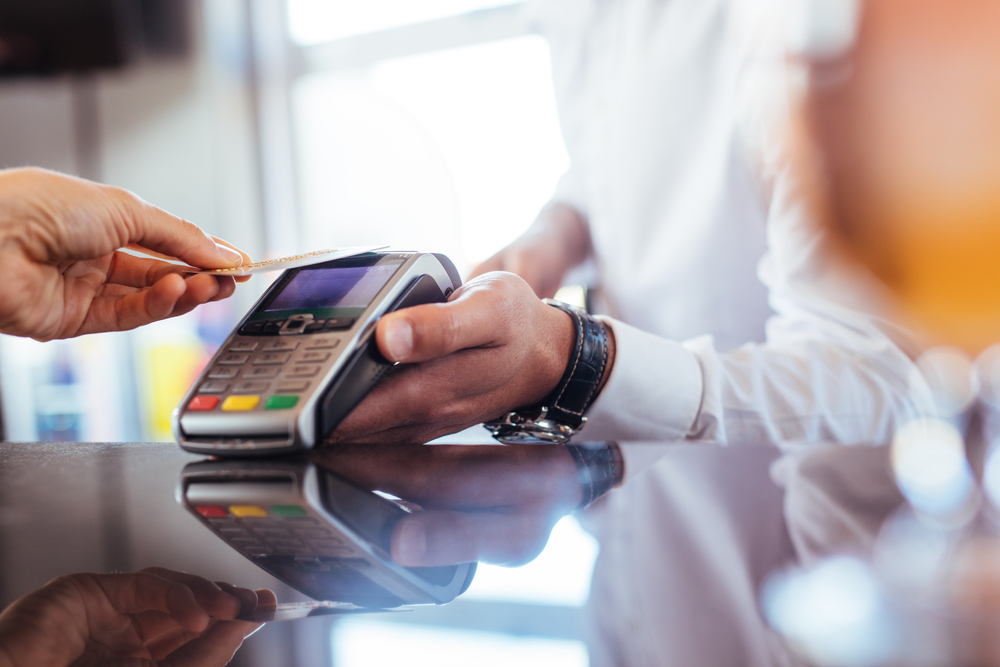
Being able to swipe or tap to pay can be a major convenience. But when a merchant accepts credit cards as payment for goods and services they sell, they incur credit card network processing fees on each customer transaction. And while many merchants accept this as a cost of doing business, many instead choose to pass these costs along directly to you through a surcharge on your total payment, says Riley Adams, founder and CEO of WealthUp.com.
“For example, if you make a $1,000 purchase with a credit card at a business that imposes a 4 percent surcharge, you’ll end up paying an additional $40,” he says. “Sticking you with that surcharge keeps their profit margins whole and you worse off. In cases like this, it generally makes more sense to pay with another form of payment if one is available.”
RELATED: Never Use Your Debit Card for These 6 Purchases, According to Financial Experts.
2
When you’re using the wrong rewards card or paying too much in annual fees.
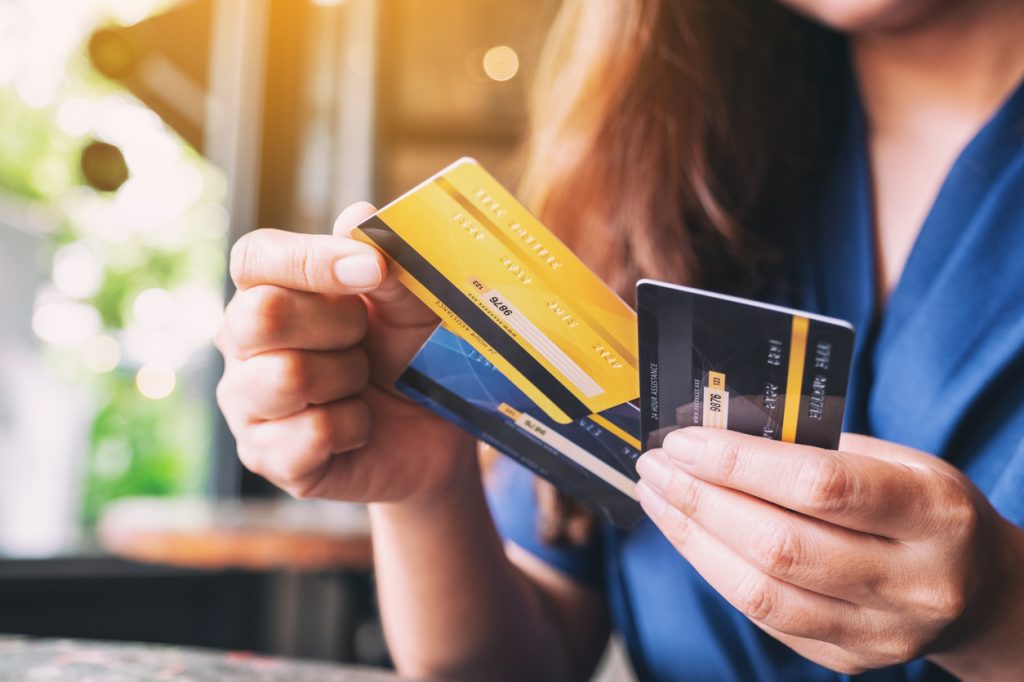
Credit cards do have the benefit of earning back rewards, even if you’re just using them on essential purchases and monthly bills. However, experts warn you might be missing out on them if you’re not signed up for the right ones.
“While using a cash back card is great, you want to make sure it works harder for you by rewarding you for the types of purchases you make the most or stores you shop at the most,” says consumer savings and smart shopping expert Andrea Woroch. “So look at your spending over the last several months to determine where you spend the most and find a cash back card that gives you more back in that spending category.”
According to Rossman, this also goes for how much it costs to keep the card open yearly. “Annual fees could be worth it, depending on how you use the card—including valuable perks such as airport lounge access, free hotel stays, better rewards, and credits for rideshares, food delivery, and retail memberships. But paying an annual fee for a card would be a mistake when you’re not taking advantage of enough of the perks to justify it.”
READ THIS NEXT: Always Use Cash for These 5 Purchases, Financial Experts Say.
3
When someone else uses it recklessly.
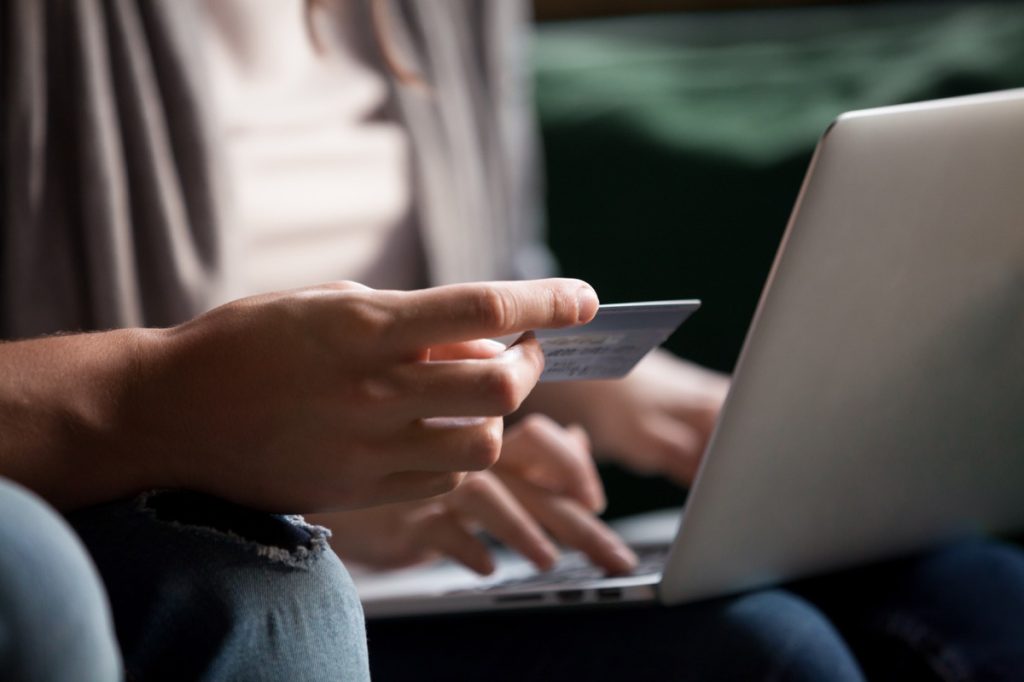
Staying on top of how much you’re swiping can be difficult, but it’s even more challenging when you’re sharing your account with someone who spends a little more haphazardly. And in many cases, this might mean cutting others off before things get out of hand.
“Allowing a cosigner or authorized user who is not financially responsible to use your card and charge more than you can afford to pay can become ruinous,” says Bill Hardekopf, a financial literacy expert and author of The Complete Credit Card Guidebook. “Since it is your account, you will be held responsible for their charges.”
4
When you use it to pay your taxes.
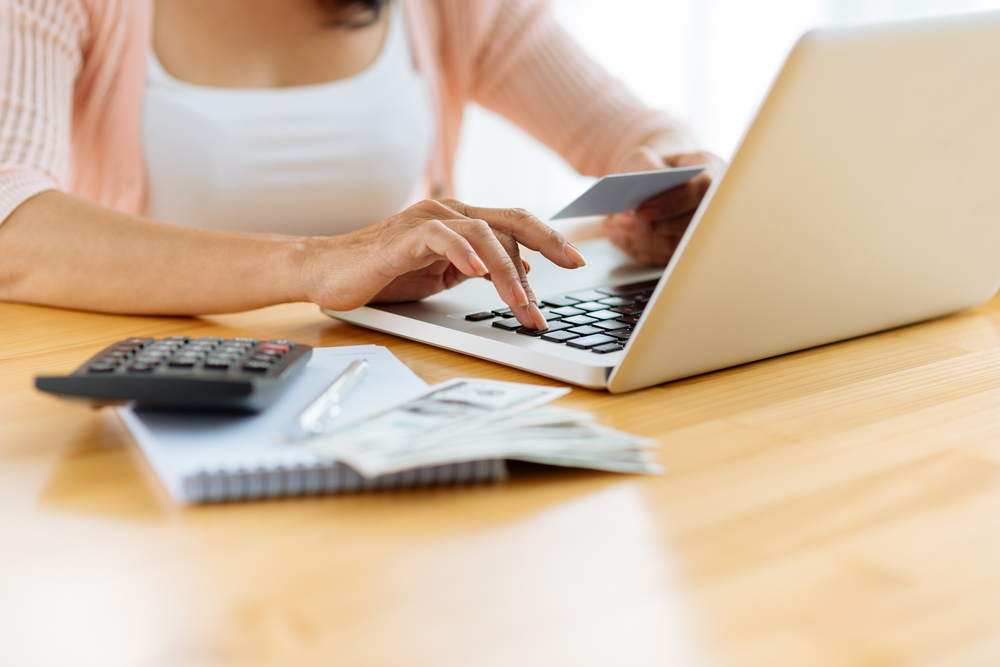
Accurately determining what you owe the IRS every year can be an ordeal unto itself. But when it comes time to settle up, you might want to leave your plastic in your wallet.
“When confronted with a substantial liability such as taxes, the temptation to put it on a credit card may arise,” says William Bevins, a private wealth manager at Cypress Capital. “Remember that the processor usually applies an additional fee of approximately 2 to 2.75 percent on your scheduled payment. You have the option to establish a payment plan with the IRS, which comes with a more favorable interest rate.”
For more financial advice delivered straight to your inbox, sign up for our daily newsletter.
5
When you use it to fill up at the pump.
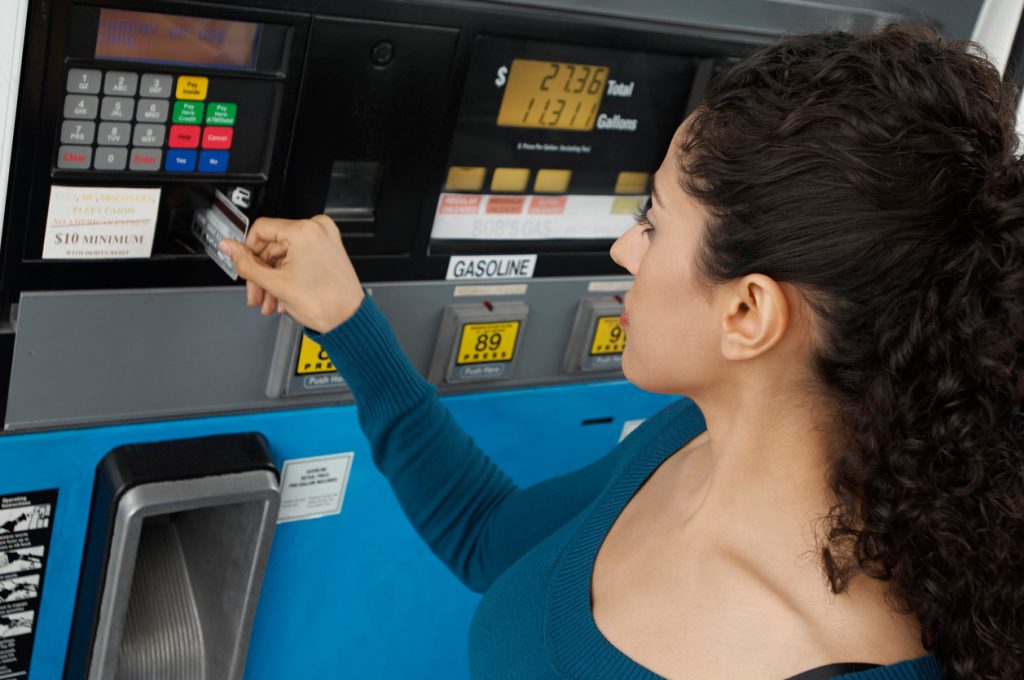
A trip to the pump may seem costlier than ever lately, but that doesn’t mean there aren’t ways you can save a little money off the bat. And according to experts, one such method involves avoiding a swipe or tap.
“Don’t let the gas price signs fool you: If you are paying by credit card, you will have to dish out an extra 10 cents per gallon in many cases,” warns Woroch. “Consider paying with cash when possible or using an app to find a cheaper gas station to offset this added fee.”
Want to secure some savings without all the trips to the ATM? Consider looking into a credit card that can actually save you money on gas purchases.
Best Life offers the most up-to-date financial information from top experts and the latest news and research, but our content is not meant to be a substitute for professional guidance. When it comes to the money you’re spending, saving, or investing, always consult your financial advisor directly.